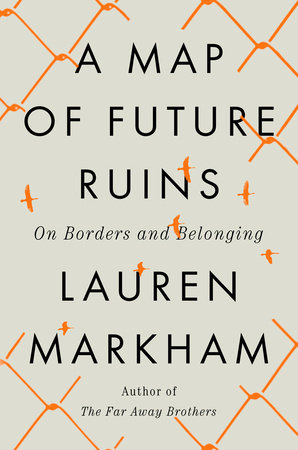Borders of the Past, Present, and Future
My new book, A Map of Future Ruins: On Borders and Belonging centers on the story of the 2020 fire that destroyed the largest refugee camp in Europe on the Greek island of Lesvos, and the six young Afghans who were blamed despite scant evidence against them. Part reportage on contemporary borders, part memoir of my own family’s migration story from Greece over a century ago, and part inquiry into the mythologies of people on the move, this book delves deep into history. Many texts guided and pushed my thinking along the way.
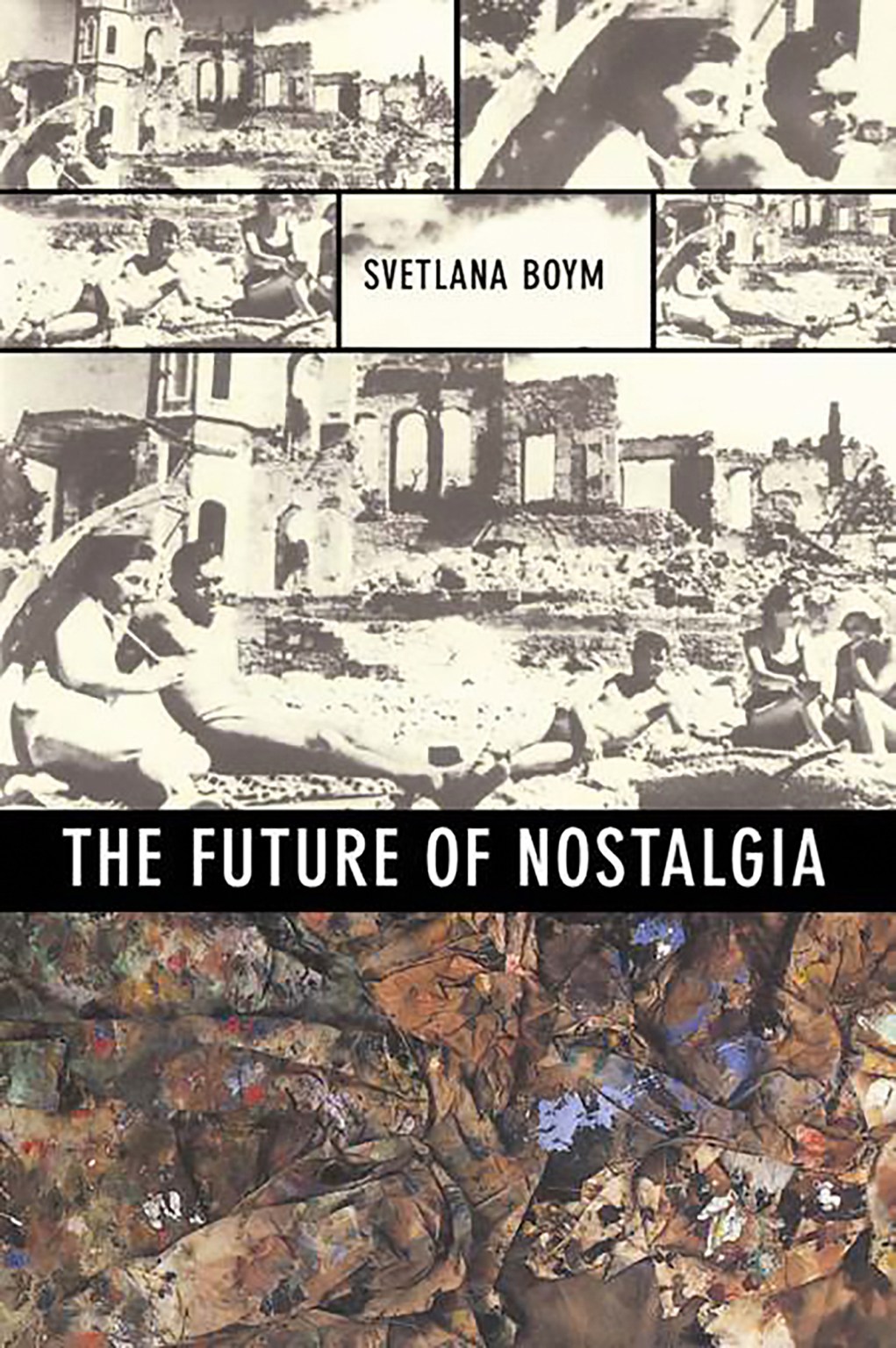 The Future of Nostalgia, by Svetlana Boym
The Future of Nostalgia, by Svetlana Boym
This 2001 treatise on the formation of nostalgia and its consequences proved essential throughout the process of writing of A Map of Future Ruins. The writer Aleksandar Hemon first suggested it to me when we shared the stage at a book event in Vancouver years ago. Back at the hotel, I stayed up late reading and re-reading an excerpted essay from A Future of Nostalgia that I found online. At the time I was constantly thinking about writing A Map of Future Ruins but unsure where or how to begin. I knew that it would be a book about migration. But I also had the instinct that it was a book about the way we view and narrate the past in light of the present, and how this determines the future. The late scholar Svetlana Boym cracked this all open for me.
“The nostalgia that interests me here,” she writes, “is not merely an individual sickness but a symptom of our age, a historical emotion.” Boym offers a history of nostalgia, which many 17th century Europeans thought to be a curable disease. The book provides a framework for understanding what Boym considers two different forms of nostalgia. People with reflective nostalgia look at the past with sometimes idealized longing, but a simultaneous awareness of the more fictional elements of this remembered past. My interest in my own Greek heritage many generations back fits in this category. Those with restorative nostalgia believe in a more perfect past to which society must urgently return — such as the white nationalist groups growing in size and power in the U.S., Greece, and elsewhere. “Modern nostalgia,” writes Boym, “is a mourning for the impossibility of mythical return, for the loss of an enchanted world with clear borders and values.”
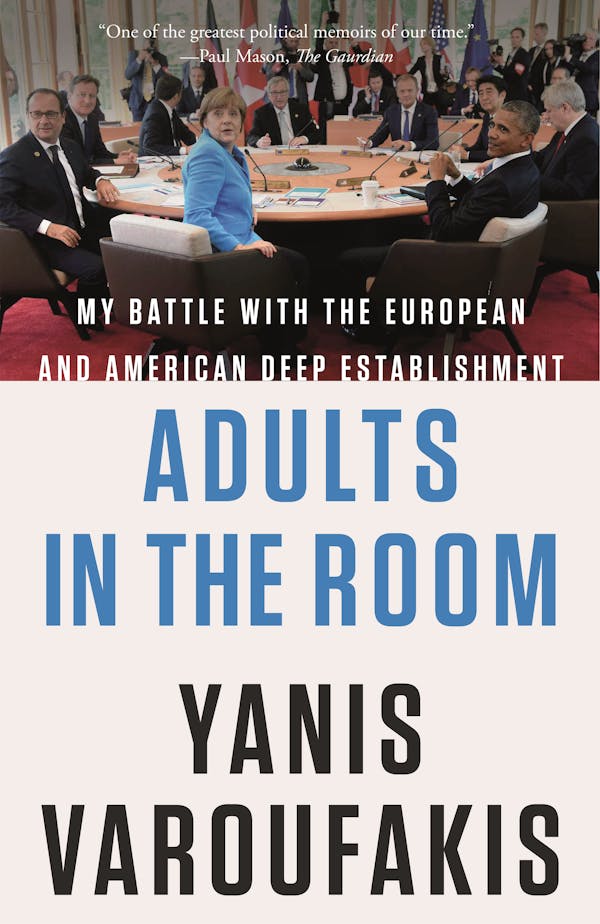 Adults in the Room: My Battle with the European Deep Establishment, by Yanis Varoufakis
Adults in the Room: My Battle with the European Deep Establishment, by Yanis Varoufakis
When the left-wing Syriza party took power in Greece in 2015, economist Yanis Varoufakis was tapped to be the country’s finance minister and helped lead the country in a game of chicken against the rest of the European Union. Relieve us of our unconscionable debt, the new Greek administration said, or we’re out. His 2018 book reads like a thriller and provides clear, infuriating context for the endless cycle of debt to which Greece is now hitched. “Our country’s fiscal waterboarding was celebrated as a sensible way of bringing lost people back into the fold,” writes Varoufakis. He narrates his contemporary Greek tragedy in the first person, so we’re well aware that this is only one man’s view of how it all went down.
Even so, I was taken with the book and what it revealed about the debt crisis, the position of Greece within the larger European project, and the inner workings of the Eurozone. I convinced an economics-minded friend of mine to read it along with me in the spring of 2020. He in turn recruited his college economics advisor to join us for a pandemic book club. We discussed Varoufakis’ showmanship (which I was charmed by, and felt fitting given the larger theater he was performing within) and the complexities of the European Union. Admittedly, my fellow book club members weren’t as convinced by Varoufakis’ side of things as I was, but we all found it to be an excellent read.
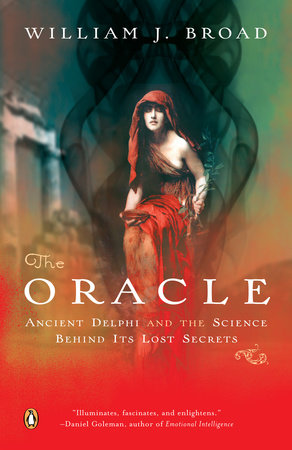 The Oracle, by William Broad
The Oracle, by William Broad
In ancient Greece, pilgrims would flock to the Oracle at Delphi to receive prophecy. Once a month, for nine months of the year, the Pythia priestess would enter a sacred chamber, inhale a mystical vapor from a cleft in the rock, receive a pilgrim’s question, and divine an answer via mystical communion with the god Apollo. Journalist William Broad writes in his 2007 book that evidence suggests so many kings and military leaders sought counsel there that Delphic guidance “repeatedly changed the course of history.” (For example: the oracle told King Croesus that if he attacked Persia, he would destroy a mighty empire. This emboldened him to wage war—but the empire he destroyed was his own.)
The Oracle shows how our narration of the past is always changing, as is what we determine to be true. Delphi reemerged in importance during the European spiritualist revivals of the 19th century. Once the site was rediscovered and excavated by the French in the early 20th century, archaeologists debunked the existence of any vapor rising from the earth. But in the 1990s, an archaeologist teamed up with a geologist to prove otherwise , shifting Delphi’s place in the historic and cultural imagination yet again, from religious site to scam to historic site yet again—albeit one still freighted with mysticism and mystery.
Modern Greece: A Cultural Poetics, by Vangelis Calotychos
This 2004 text, suggested to me by a Greek activist working on behalf of refugees on Lesvos, introduced me to the notion that Greece performs a select version of itself — Hellenism, that is — for the rest of Europe and “the west,” clinging to this one outsized sliver of its past to secure continued inclusion, recognition, and relevancy.
“The denigration of modern Greece, its material manifestation,” writes Vangelis Calotychos, a Greek scholar based at Columbia University, “is a byproduct of attaining the Ideal of Greece.” The book is dense and demanding, using a host of modern “texts”— from the first map ever drawn of modern-day Greece in the late 18th century by an exile named Rhigas Velestinlis (a story I write about at length in my book, with great thanks to Calotychos’ insights), to poetry, to political treatise — to trace the creation of modern Greece as an idea that was, in part, built by and for those outside of Greece, “who sought to weave the modern Greek story into the master narrative of European identity through allusion to the classical past and its ideals.” How, the book asks, might we look differently at the past? This is a question I wrestle with in my book, given how often our histories are fashioned to justify certain elements of the present.
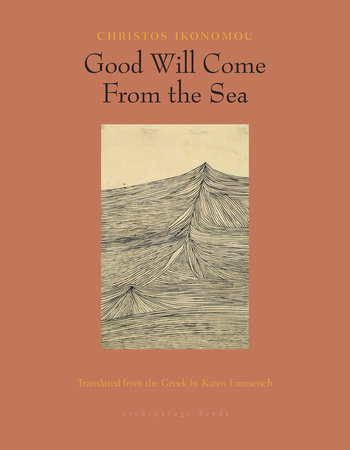 Good Will Come from the Sea, by Christos Ikonomou, translated by Karen Emmerich
Good Will Come from the Sea, by Christos Ikonomou, translated by Karen Emmerich
Sometimes fiction can be the most potent chronicle of the near and distant past. Good Will Come from the Sea, first published in English in 2019, is a book of linked short stories set in the wake of the debt crisis on an unnamed island, where people from Athens, no longer able to make ends meet in the city, have carried out a reverse migration in attempt to salvage their lives and livelihoods. It reads like a chronicle of daily life: people hanging out at a tavern, people sitting by the sea, people worrying over finances. Ikonomou is a writer of deep interiority and longing, who combines high lyricism with fervent realism.
“I don’t know what’s worse,” thinks one of Ikonomou’s characters, “to love your country because you’re ripping it off, or hate it because you can’t do that anymore, and I think now that the money’s gone, we have to find something else to keep us together, but I can’t think of what, I can’t see that there’s anything left, there’s nothing, nothing, nothing…” This book added a sense of depth and texture to the fallout of the debt crisis and its impact on Greeks — which would in turn impact Greece’s border policies. Today, right-wing leaders have capitalized on citizens’ suffering to turn them against the refugees and justify increased border security and a violent, illegal regime of secretly sending refugees back out to sea.
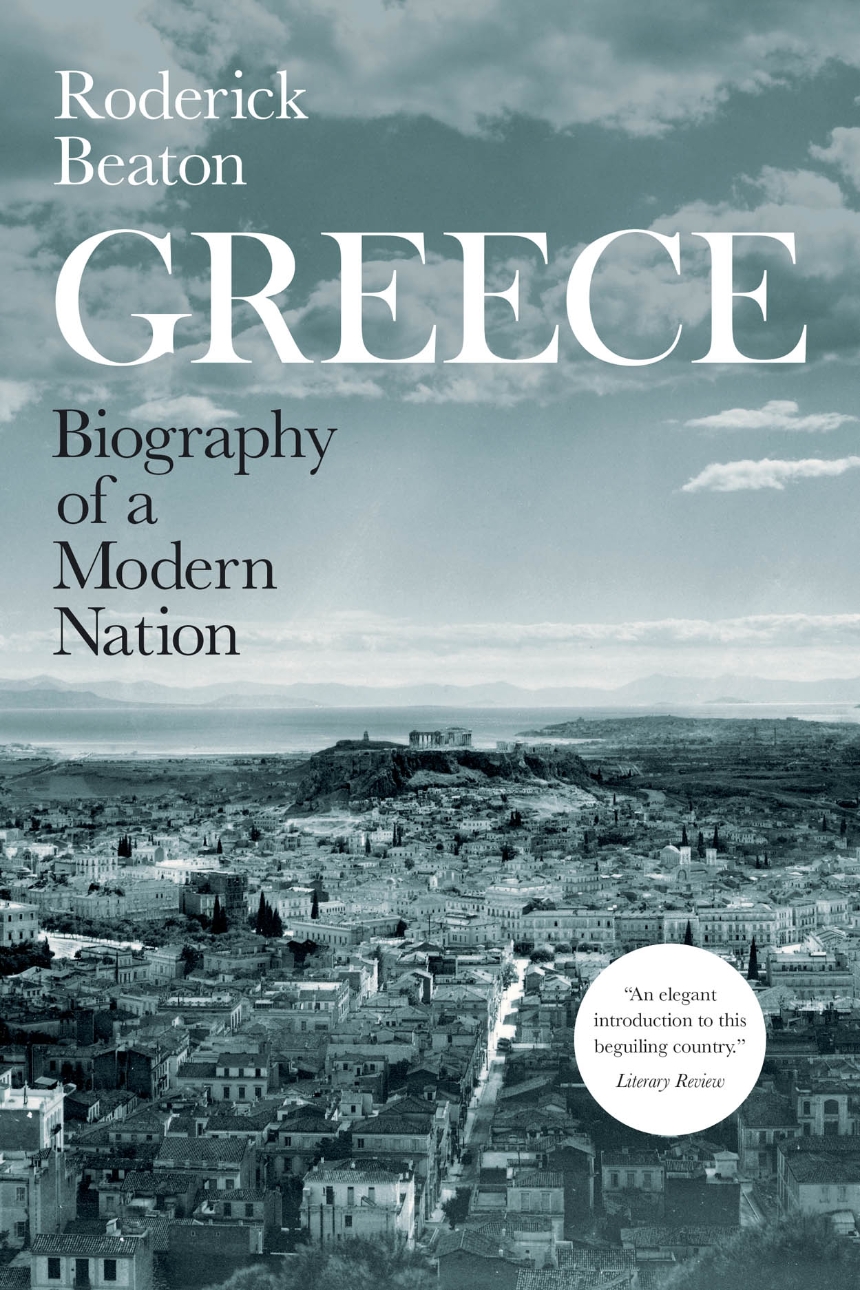 Greece: Biography of a Modern Nation, by Roderick Beaton
Greece: Biography of a Modern Nation, by Roderick Beaton
Roderick Beaton’s 2019 book provides a remarkably readable (we’re talking page-turner, here) history of Greece from the launch of the Greek nation-state at the turn of the 20th century to today. Beaton, a Brit, is clearly fascinated with Greece and writes vividly of its many years of modern struggle, from the Greco-Turkish War to the Nazi occupation to the dictatorship of Georgios Papadopoulos. But he also regards the mythologies built around the place Greece with a good dose of skepticism, tracing both the purpose of such legends and their cost.
“So used are we, today,” writes Beaton, “to thinking of ‘modern Greece’ as an offshoot of ancient Greece, it can be hard to realize that for many of the centuries separating classical antiquity from ourselves no such sense of affinity existed among Greek speakers.” Greece like all nation-states, is above all an idea: one assigned a perimeter on the map.
 Borderwall as Architecture, edited by Ronald Rael
Borderwall as Architecture, edited by Ronald Rael
This 2017 book features a simple and delightfully deviant conceit. As if responding to a U.S. government call for proposals for border wall designs, it offers ideas that serve a purpose other than division and force readers to think about the fictional nature of borders.
Edited and assembled, with lots of visuals, by the architect Ronald Rael, this compendium of anti-wall, anti-border designs — from a “Wallyball” court to a confession booth to a lunch counter to a xylophone that can be played on all sides — is at once playful and deadly serious. As farcical as some of these designs may seem, they aren’t so far from the truth. The summer I first reported in Greece, the government proposed building a floating wall across the sea to stop migrants from crossing.
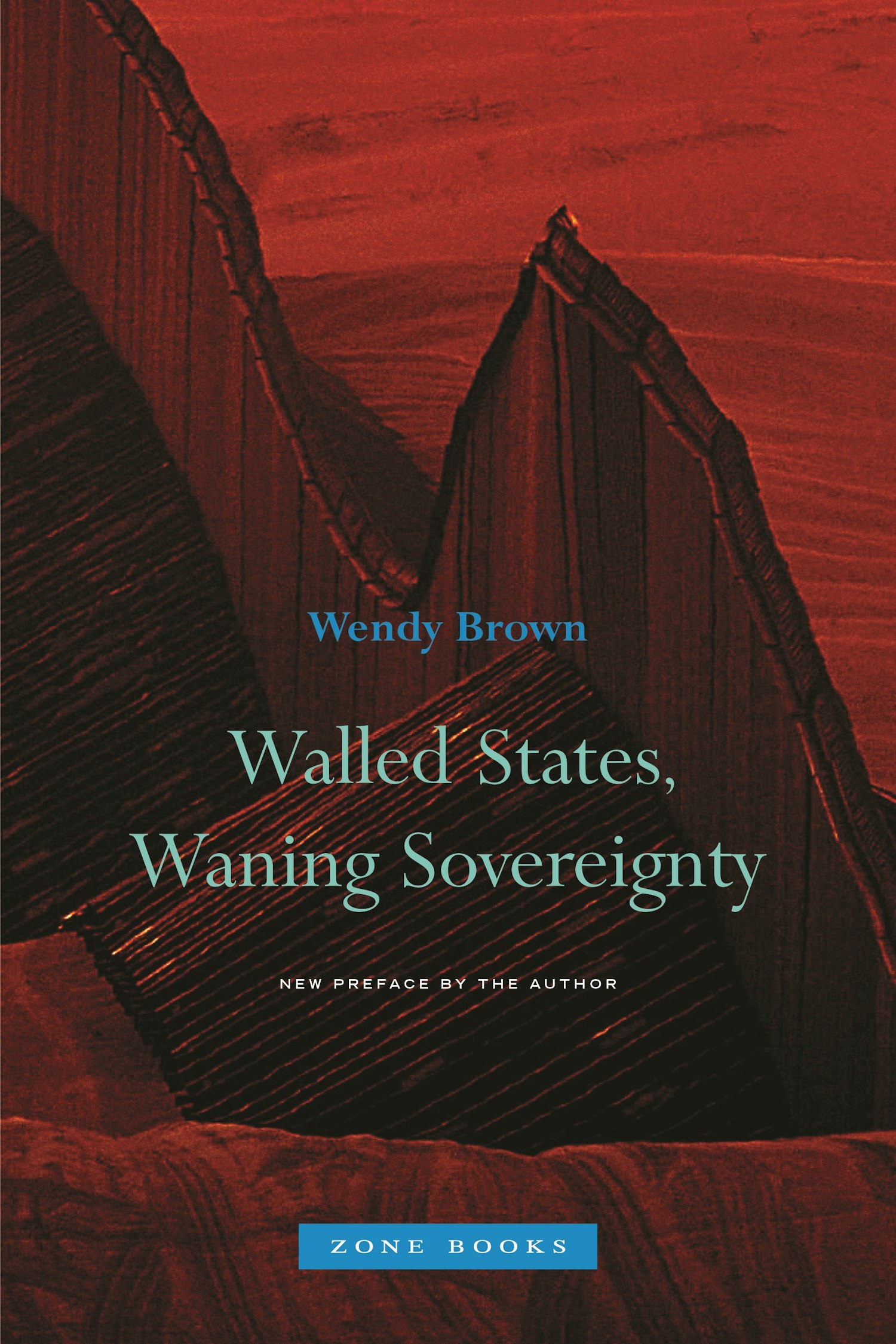 Walled States, Waning Sovereignty, by Wendy Brown
Walled States, Waning Sovereignty, by Wendy Brown
Scholar Wendy Brown’s book investigates the unprecedented rise in border fortifications throughout the world — what they signify and what they herald.
She suggests that these walls do not merely function to keep migrants out, but also signal a larger sovereignty crisis within the nation-state in our globalized world. I first found her book when writing a story for Harper’s Magazine about a tiny, much-contested border wall between arctic Norway and Russia. Sections of that story appear in A Map of Future Ruins. I have returned to Brown’s work again and again. “When do the new walls become more like the confining walls of a prison, rather than the comforting walls of a house?” she asks. “When does the fortress become a penitentiary?”
